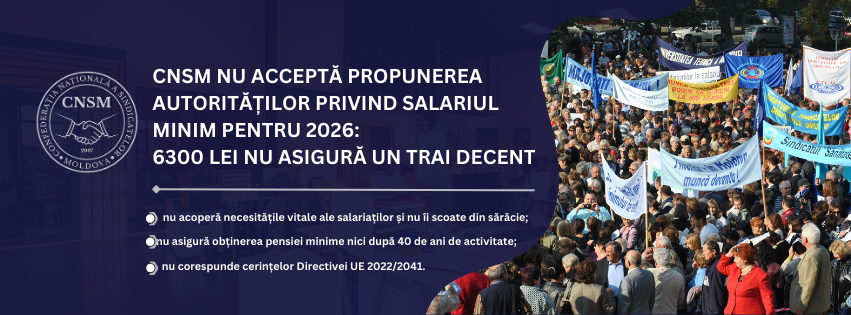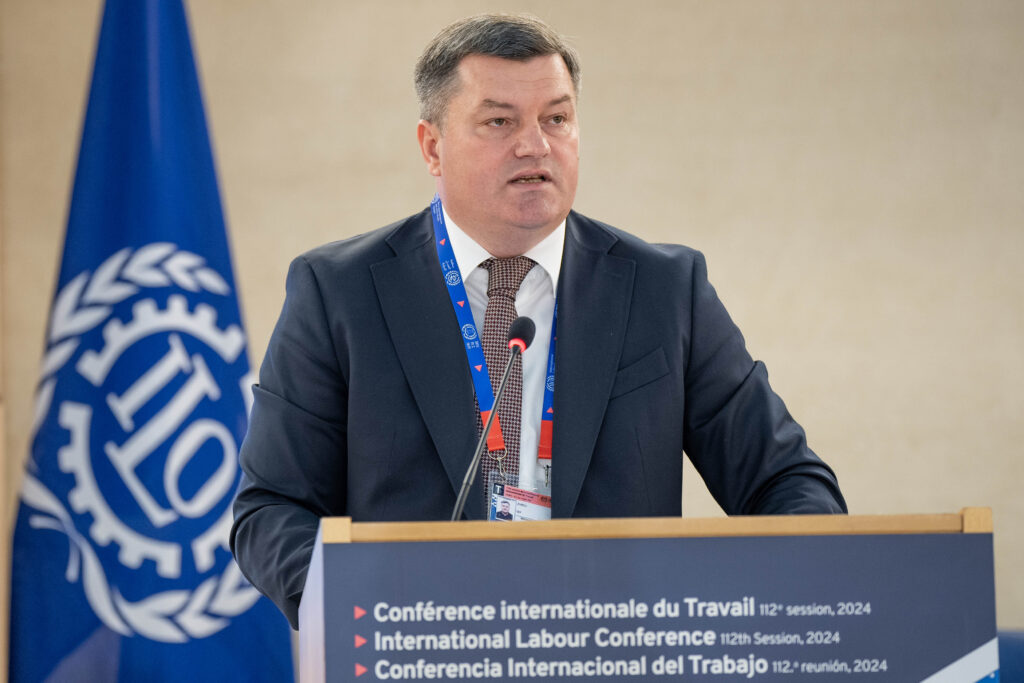The National Trade Union Confederation of Moldova (CNSM) expresses its strong disagreement with the authorities’ proposal to set the minimum wage for 2026 at 6,300 lei. This proposal was presented during today’s (21 November 2025) Technical Working Group meeting at the Ministry of Labour and Social Protection.
The Technical Working Group meeting followed discussions held on 20 November within the National Commission for Consultations and Collective Bargaining (CNCNC), at the request of CNSM. Participating in today’s meeting were Sergiu Sainciuc, Vice-President of CNSM, Polina Fisticanu, Head of the Social-Economic Protection Department at CNSM, as well as representatives of the relevant ministry and the National Confederation of Employers of the Republic of Moldova.
According to the information presented, the 6,300 lei figure results from consultations between the Ministry of Labour and Social Protection and the Ministry of Finance. CNSM considers this proposal insufficient, unfounded, and not reflective of current economic realities, given rising living costs and the increasing financial pressure on employees in the Republic of Moldova.
CNSM emphasizes that the proposed 6,300 lei:
- does not cover workers’ basic needs and does not lift them out of poverty;
- does not ensure a decent standard of living for employees and their families;
- does not allow for the accumulation of a minimum pension even after 40 years of work;
- does not comply with the requirements of EU Directive 2022/2041;
- does not contribute to the Government’s target of raising the minimum wage to 10,000 lei by the end of its mandate, as outlined in the “EU, Peace, Development” Action Program.
Given the current economic and social context, CNSM believes that the minimum wage should correspond to the real cost of living and European social protection standards. During the 20 November CNCNC meeting, the Ministry of Finance also presented an alternative of setting the minimum wage at 6,500 lei, which would increase costs by only 130 million lei per year, approximately 50% of which would be collected in the national budget through income tax, medical contributions, and social security contributions – a cost CNSM considers minimal.
CNSM reaffirms its openness to dialogue but stresses that negotiations must be based on the realities faced by the citizens of Moldova – employees and union members – and on respecting every worker’s right to a decent standard of living.
The National Trade Union Confederation of Moldova will continue to inform the public about the progress of negotiations and the unions’ position within the tripartite process.

